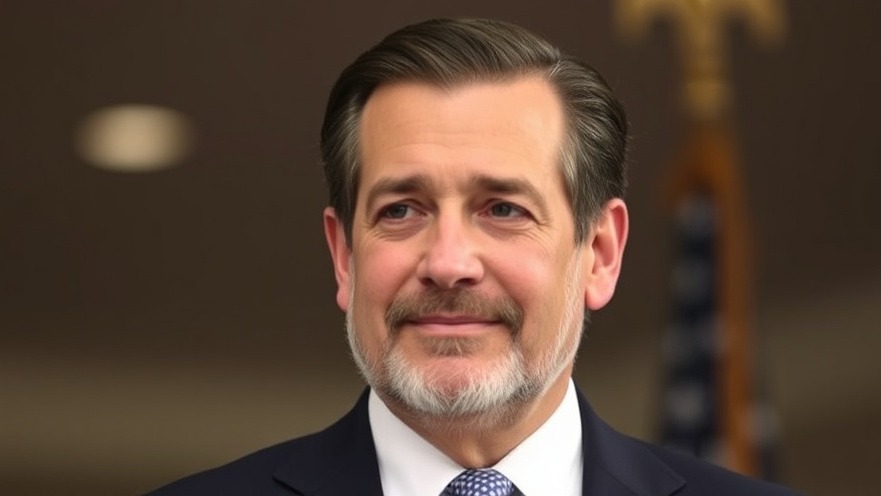
Ted Cruz's Surprising Take on Jimmy Kimmel's Suspension: A Warning for Conservatives
In a recent shocking statement, Texas Senator Ted Cruz expressed his concerns over the Federal Communications Commission (FCC) chairman's threats against ABC regarding the suspension of late-night host Jimmy Kimmel. While many Republicans remained silent or supportive of Kimmel's exit, Cruz labeled the FCC's intervention as "dangerous as hell," evoking images of mafia-style intimidation tactics.
The incident traces back to ABC's decision to suspend Kimmel following comments he made about the killing of conservative activist Charlie Kirk. Brendan Carr, the FCC chairman, argued during a podcast appearance that ABC had a responsibility to operate in the public interest, insinuating that the FCC could reconsider the network's broadcast license if it failed to address Kimmel's remarks.
The Implications of Government Intervention in Media
Cruz's warnings underscore a broader concern among conservatives about the implications of governmental oversight in media. Despite expressing disdain for Kimmel, who has targeted Cruz in his routines, Cruz cautioned that government involvement could backfire on conservatives in the future. He speculated that if Democrats regain power, they might use similar tactics against conservative voices, effectively silencing dissenting opinions.
In pointing out the slippery slope of governmental control, Cruz referenced the possible repercussions of federal intrusion into media narratives. His concerns echo a fear many in the media landscape share: that what starts as a suppression of a specific viewpoint could lead to broader censorship that stifles free speech.
Cruz's Stance: Between Support and Condemnation
Although Cruz supported Kimmel's departure from ABC, he advocated for a more traditional approach to accountability. He suggested that a lawsuit for defamation against Kimmel or ABC would have better served those unhappy with Kimmel's monologue, reinforcing a belief in legal recourse over punitive governmental measures.
This juxtaposition of Cruz's sentiments reveals the complexity of the current political climate. Cruz’s comments highlight a rift between members of the GOP, some of whom appear willing to support the FCC's stance against Kimmel, and others, like Cruz, who perceive a deeper underlying threat to free speech and political discourse.
Public and Political Reactions
The backlash against Carr's handling of Kimmel's comments has not been limited to Cruz. Democratic leaders accused the FCC chairman of threatening First Amendment rights, which further fueled the controversy. Meanwhile, various Republican figures have opted to distance themselves from a firm stance on the situation, leaning towards a "let it play out" philosophy, highlighting divisions over media control within the party itself.
As this story continues to evolve, it has implications far beyond just late-night television. It opens the floor for discussions about the role of government in culture and free speech, the media’s responsibility, and how political narratives can shape public discourse.
Looking Forward: Predictions for Media and Political Accountability
As media landscapes evolve, one crucial aspect remains constant: the need for accountability both in the portrayal of events and the roles of government entities like the FCC in those portrayals. Cruz’s insights serve as a reminder for citizens to remain vigilant, urging a reevaluation of how media entities and government interact.
Looking ahead, could future political landscapes lean more heavily into regulating media outputs? As tensions rise anew, it poses a pressing query for voters and media consumers alike: how do you protect free speech while discouraging harmful rhetoric?
Call to Action: Engage with the Conversation
As these issues unfold, staying informed about developments surrounding media accountability, political power, and First Amendment rights is crucial. Follow local Texas news publications and engage in discussions that will shape our understanding of freedom and media regulation. Your voice matters.
 Add Element
Add Element  Add Row
Add Row 



Write A Comment